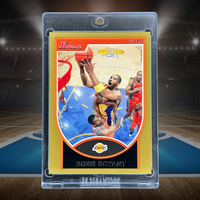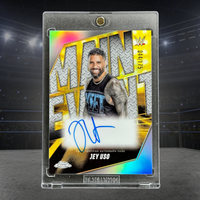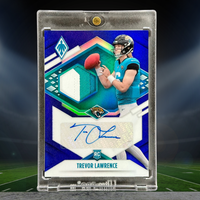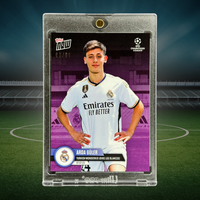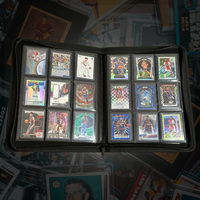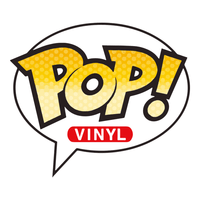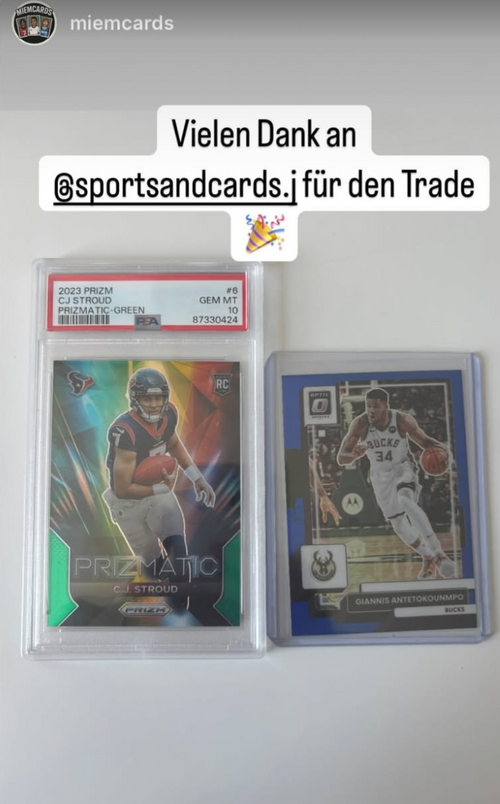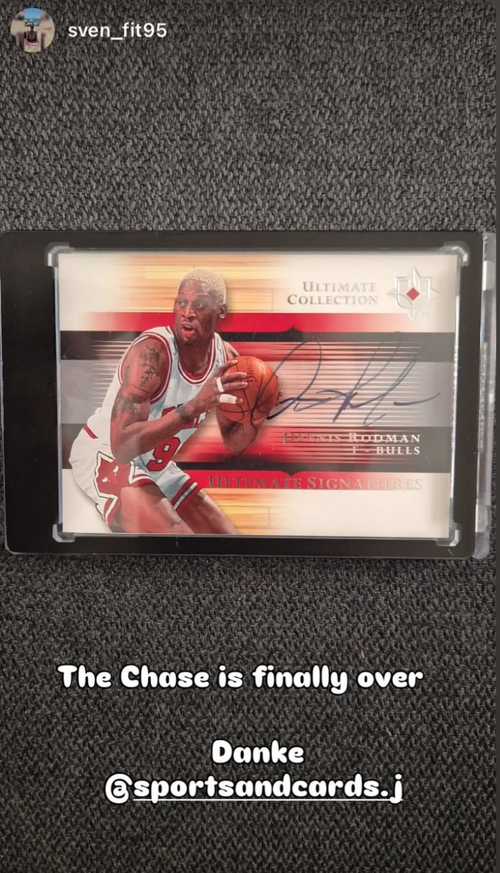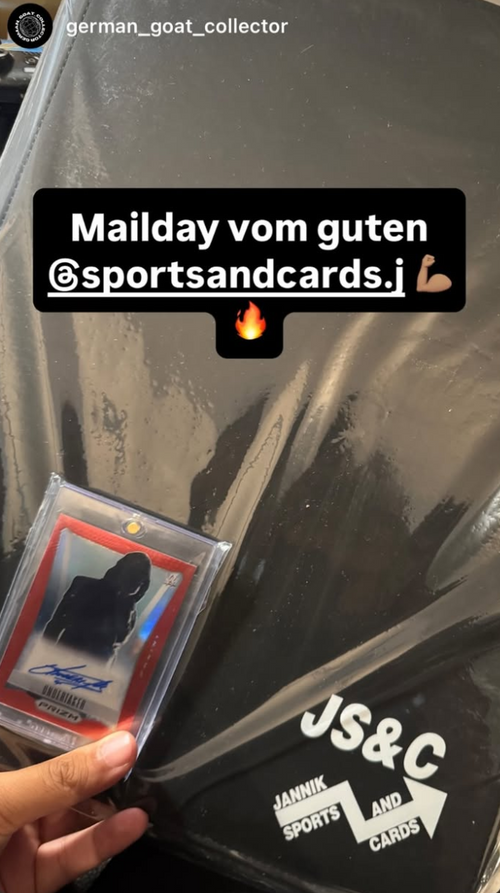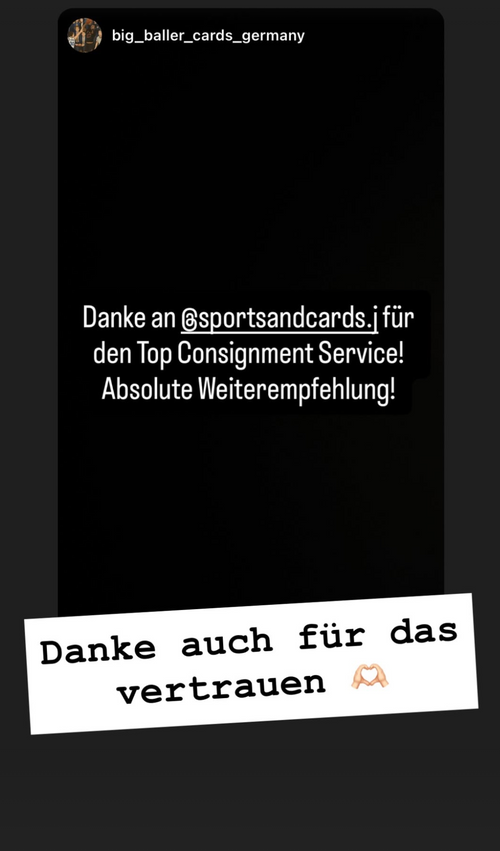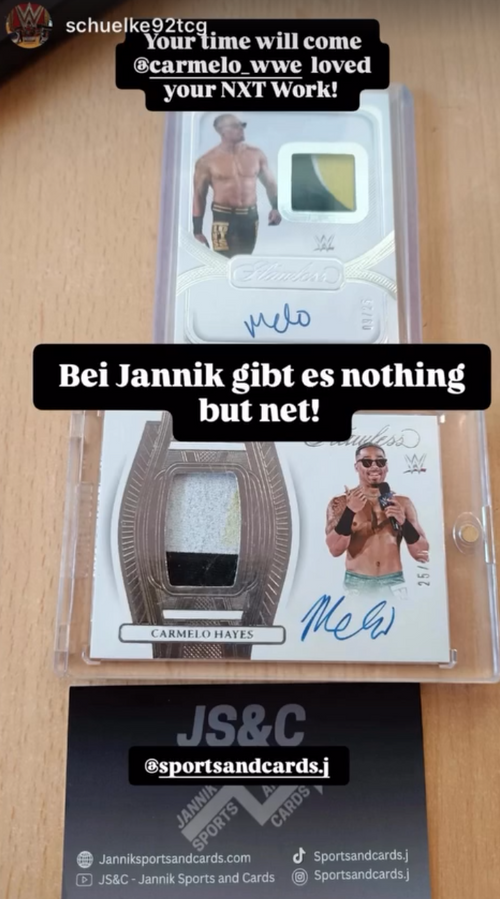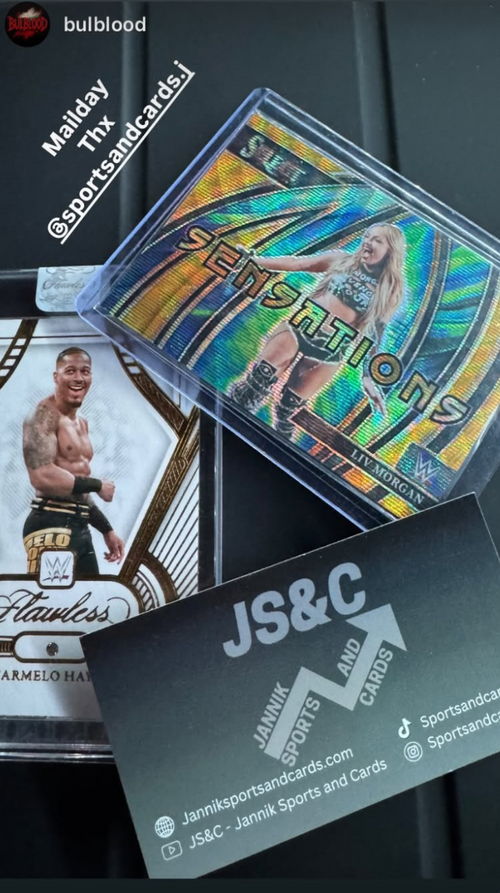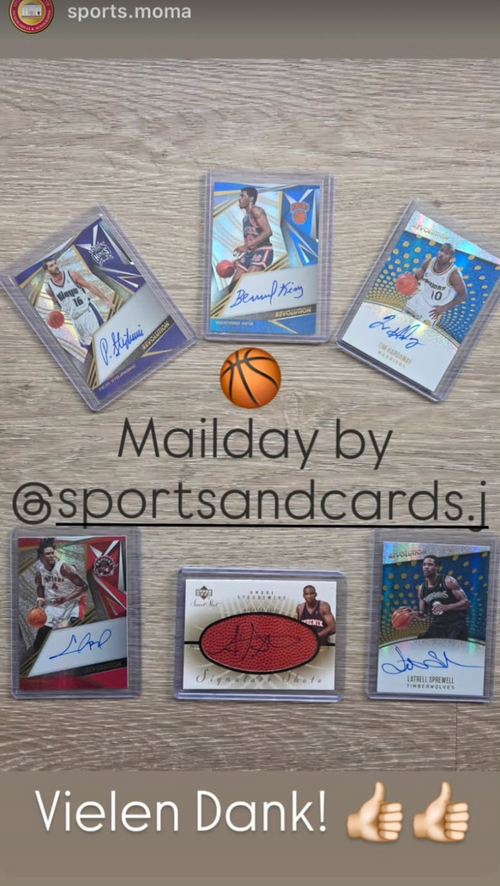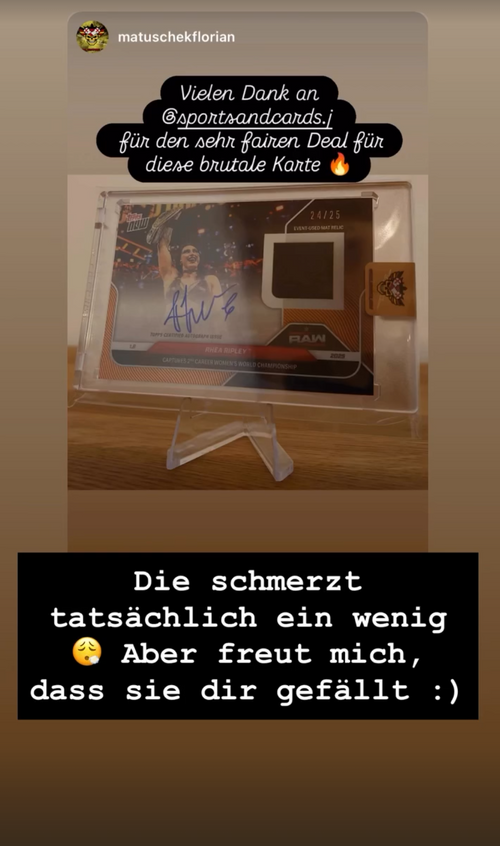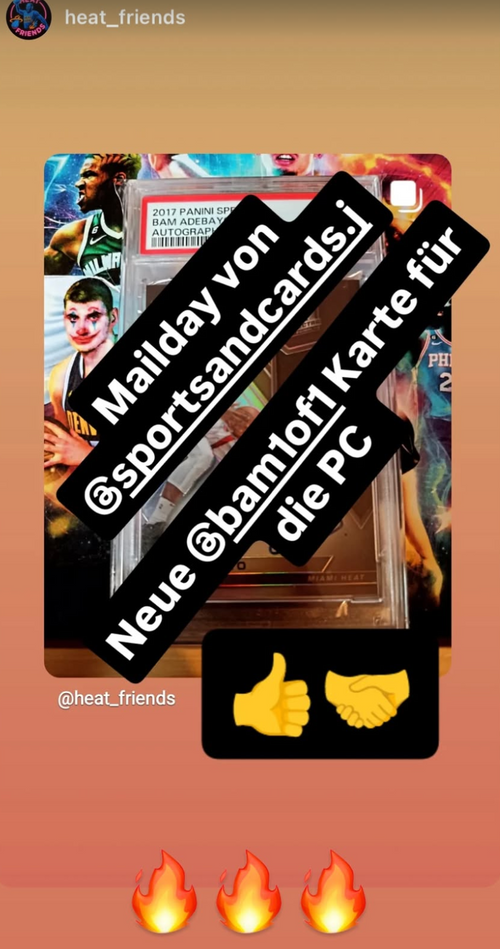Hobby ABC
Our beloved hobby is incredibly versatile. Many different products, different manufacturers and endless different parallels. There are also various terms and abbreviations when collecting and trading as a hobby.
No wonder newbies can sometimes be overwhelmed!
Here you will find the most important terms and abbreviations in the hobby and their meaning.
| Acetates | Transparent plastic cards such as Clearly Donruss. The cards are usually very difficult to grade because the material is very susceptible to scratches. |
| automobile |
Short for autograph (autograph) A card with a player's signature. There are both on card autographs, where the autograph is directly on the card, and sticker autographs, where the card is on a sticker, which is then stuck onto the card. |
| BGS |
Beckett Grading Services One of the major grading and authentication services for trading cards and other products. Grading not in whole steps like PSA (8,9,10) but in half steps like SGC (8.5,9,9.5,10). BGS also has subgrades, which consist of 4 categories and together make up the main grade (Centering, Edges, Surface, Corners). It is particularly difficult to get a 10 at BGS, so the prices are usually higher than at PSA. If every subgrade has a 10, the card gets a Black Label 10 (the grading label is then black), which are very, very difficult to get. |
| Break |
A break is having cases, boxes or packs opened in a stream by someone else. As a rule, you pay for a spot and then get, for example. a team Break all cards of a team for which you paid. |
| Card show |
An event all about trading cards. This is about buying, selling and trading trading cards as well as getting to know other people in the hobby. |
| Case hit | A rare and usually high-quality card that is the hit, i.e. the card that you want to pull from a whole case. |
| Coins | Sometimes required by potential buyers to make sure that the card really belongs to the seller and is not a fake. As a rule, it is enough to write your username on a piece of paper and take a photo of it next to the card. |
| comps |
The last sold prices of a card to estimate a current price. Tools such as Market Movers, CardLadder or the free website 130Point are usually used to find out the comps. |
| Custom "Art" Cards |
Custom cards, also known as art cards or art cards, are cards that a person (often private individuals or artists) makes themselves. They use their own ideas or those of their customers to create creative and unique cards. The cards can be cut together from other cards, simply painted or completely redesigned. |
| Die cut | A card that is not the usual rectangular shape. Part of the map has been removed here to give a specific design and shape that deviates from the norm. |
| FOMO |
Fear of missing out Hasty/rash purchase of a card at an unreasonable price for fear of missing out on the card. |
| PHOTO |
First of the line They are improved and more expensive hobby boxes where you have the chance to draw parallels that are only available in first of the line boxes. |
| FS |
For Sale A card that is offered for sale. |
| FT |
For Trade A card that is offered for exchange. |
| Hobby products |
Boxes of trading cards not intended for retail use. The prices are more expensive than retail products but the content and yield are generally better than retail products. |
| Jersey card |
Cards with a built-in jersey piece in the card. A distinction is often made between: - “not associated” = not worn by the player of the card - “Player Worn” = Worn by the player - “Game Worn” = Worn by the player during a game |
| Junk Wax Era | The Junk Wax Era was a period between the late '80s and early '90s that saw the hobby suffer a severe overproduction of products and cards. Many of these cards and even locked boxes are not particularly valuable despite their age. |
| Licensed Cards | Cards that are produced by company XY and have a license from the league to also display team logos and jerseys. |
| LOT | A lot is several cards that are offered together. |
| Mag Holder | Mag holders, like top loaders, help keep the cards in good condition, but are significantly higher quality. However, the card is often placed in a sleeve to prevent the card from being scratched. |
| OBO |
Or best offer The seller of a card has a price for a card, but is also open to offers and will probably accept the highest bidder. But if you accept the stated price, you will receive the card immediately. |
| On card car |
A player's autograph on a card and verified for authenticity by the production company (on the back of the card). Is usually worth more than a sticker autograph because the player himself held the card in his hand and signed it. |
| Panini Points | Can be drawn in products and exchanged for cards on the Panini website. |
| Patch |
A patch is essentially a jersey card, but in this case there is something sewn onto the card and not just the fabric of the jersey. E.g. team logo, part of the name or league logo. A patch is usually more desirable than a simple jersey card. Here too, as with the Jersey Cards not associated, there are player worn and game worn. |
| PPE |
Professional Sports Authenticator PSA is the largest of all grading companies and is the clear number one compared to the other companies, especially when it comes to increasing value. |
| Raw card | A card that has not been graded by a grading company. |
| Razzel |
A raffle where there are a certain number of spots and each person has to pay for a spot. When all spots have been allocated, the card will be randomly raffled off to one of the spots. The winner gets the card for their spot prize and the remaining participants go away empty-handed. There is often a buy back option for the winner so that instead of having the card sent home, it can be paid out directly by the Razzle organizer. (Please be careful with Razzles because of the addictive nature of such games!) |
| RC |
Rookie card A player's first cards as a professional athlete or in the respective league in their first year. |
| Redemption |
A redemption is a card that cannot be drawn from the pack itself. Instead of the actual card, you will find a simple piece of cardboard in the products with the card's information and a code to redeem it. You can redeem the code on the manufacturers' websites and the manufacturers have the player sign the card and then send it to you. Redemptions are rather unpopular in the hobby because they make the experience of opening a box less exciting as you sometimes have to wait a long time for your card. |
| Reprint | Reprints are copies of cards that were produced at a later date. While some cards are marked as reprints, there are others that do not have this marking. In this case, a buyer should be careful not to allow themselves to be ripped off. Such dangerous reprints are more common on vintage cards. It helps to buy an ungraded card but only authenticated by one of the major grading companies (PSA, BGS, SGC etc.) |
| Retail products |
Boxes of trading cards for sale in retail stores. E.g. blaster boxes or mega boxes. |
| RPA |
Rookie Patch Autograph A player's rookie card, which also includes a sewn-on piece of a jersey and a signature. (A player's most expensive modern cards are often RPA's) |
| SGC |
Sportscard Guarantee Corporation Another grading company with the special feature that the area around the card is covered with black foil and is not transparent like PSA or BGS. SGC Graded like BGS in half steps (8.5,9,9.5). In addition, they then award the 10 GM and the better 10 PRI, which should also reflect a flawless card, similar to the Black Label BGS. |
| Sleeves |
Sleeves are soft plastic covers that you put around cards so that they don't get scratched. However, sleeves do not help with potential damage to corners or edges. |
| SP/SSP |
Short Print / Super Short Print SP = cards that were printed less frequently than base cards and are therefore rarer. SSP = cards that have been printed significantly less and are much more difficult to find in boxes. Typically, SSPs fetch a significantly higher price on the secondary market due to its rarity. Kabooms would be such SSPs, for example |
| Sticker car |
A card with an autograph from the specified player, however the signature is not on the card but on a sticker. This means that the player did not have the card in his hand, but only the sticker, which was then stuck onto the card by the card production company. |
| SV |
Sell Value A price the seller wants for a card. |
| TCG |
Trading Card Game Trading cards that also follow a game principle, for example Pokemon, Yu-Gi-Oh or Magic the Gathering. |
| Top loader | Top loaders are hard plastic cases that help keep the card in good condition. To avoid scratching the card, you should always place the card with a sleeve in the top loader. |
| TV |
Trade Value A value that the seller would like to have back when exchanging one card for another. (As a rule, the TV is higher than the SV) |
| U.D |
Upper deck Another card production company, like Panini or Topps. Today they mainly make NHL cards. |
| Unlicensed Cards |
Cards that do not have a license from the leagues. Leaf, for example, is a well-known card production company that does not have licenses from the respective league and is therefore allowed to depict the players but not the team logos, names, etc. Another example is Panini with their MLB products. |

